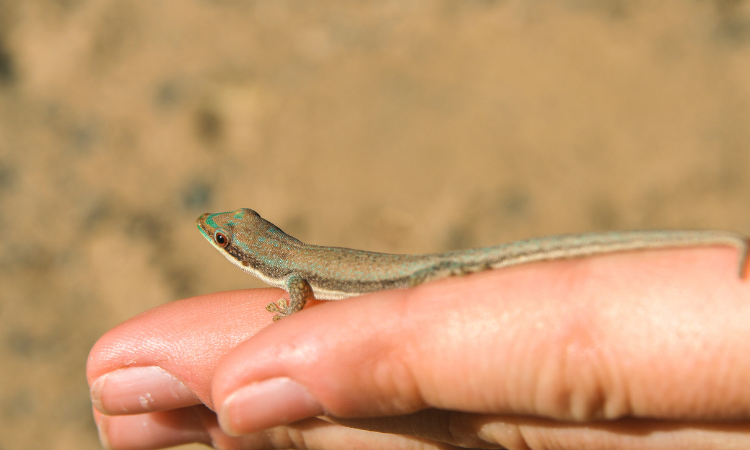A pet gecko can be an exciting and rewarding addition to your family! But like all pets, geckos require care and attention if they’re going to stay healthy and happy. From providing a suitable habitat to understanding the dietary needs of your gecko, there are many important factors in keeping them healthy and comfortable. If you’re considering taking on the responsibility of a new pet or are just curious about what it takes to keep one, read on for our comprehensive guide to everything you need to know about caring for a gecko!

Understand the basics of gecko care and behavior
Taking care of geckos requires patience and knowledge. Before owning a gecko, it’s important to do research to understand their basic needs and behaviors. Geckos need spaces that are well-ventilated and temperature-controlled, and they should have enough room to roam.
When geckos feel threatened or stressed, they may respond by puffing up their bodies or hissing. It’s also essential to make sure they’re receiving proper nutrition. Generally, geckos eat insects such as crickets, but there are other diet options available too, like pre-made food mixes.
Understanding gecko behavior is key in providing them with the best possible care. By spending time observing them, an owner can become familiar with their individual personalities during activities such as hunting for their food. Providing geckos with an environment that is safe and meets their requirements will help ensure a happy and healthy creature!
Get the right type of tank for your gecko – should consider size, temperature requirements, lighting, and substrate
When choosing the right type of tank for your gecko, make sure to take a few elements into consideration. Size is important in providing your geckos with adequate space to stretch its wings and crawl around seamlessly.
It’s also important to consider the temperature requirements so that you can provide a comfortable environment for your gecko – temperature should also be monitored regularly.
Furthermore, geckos also benefit from having sufficient lighting and substrate in their tank as this helps with their overall health as well as providing them stimulation within their environment.
As geckos differ from species to species, it’s best to research guidelines depending on the type of gecko that you have so that all these components are met accordingly.

Provide adequate hiding spots for your gecko
Providing adequate hiding spots for your gecko is an important part of gecko care. Hiding places are useful for geckos as they offer a feeling of safety, allowing them to rest and hide from potential predators. Without proper hiding spots, geckos may become stressed, making them more susceptible to illness or disease.
Adding things like driftwood, plants, cork bark and hollow logs can help geckos feel secure and provide escape routes when necessary. In addition to providing natural options, commercial products such as artificial caves and shelters can also offer geckos secure hiding spots while adding texture and interest to their habitat.
Regardless of the style of hide chosen, the most important thing is that it fits the gecko’s size, is securely placed and offers complete privacy when desired. With these considerations in mind, setting up plenty of safe spots for a gecko can help create an enriching environment for your pet reptile.
Provide a varied diet with live insects and/or prepared food
Providing a gecko with a varied diet is incredibly important for its overall health. Live insects such as crickets and mealworms are ideal for geckos, as they offer necessary hydration, nutrition and vitamins that other foods just don’t provide.
Prepared gecko food can be an easy replacement for live insects, but it should not make up the entirety of their diet. This type of gecko food only provides limited nutrients, making the inclusion of both insect-based meals and prepared gecko food optimal to keep your gecko’s dietary needs adequately met.
Both types of food offer different benefits to your gecko, so it is essential to incorporate both into a regular diet plan.
Maintain humidity levels that are appropriate for the species you have
Keeping geckos in captivity requires special care and consideration when it comes to humidity levels. Geckos prefer temperatures between 75-85 degrees Fahrenheit and require a relative humidity of around 50-60 percent, which is higher than many other reptiles.
This makes accurate monitoring of the terrarium’s environment more important than ever before. To keep gecko habitats at their best, use both digital thermometers and hygrometers to make sure that they are living in optimal conditions with the necessary levels of moisture in the air.
If you cannot regulate the climate to your gecko’s liking, there are also a number of products on the market like mossy bricks or water drip systems that can help maintain a specific humidity level for your gecko.

Monitor your gecko’s health and oral hygiene
Keeping geckos as pets is a rewarding experience, but they require special care when it comes to health and oral hygiene. It’s important to be aware of gecko health problems such as respiratory infections, eye disorders, metabolic bone disease, and parasites.
Monitoring signs like eating habits, alertness, fecal consistency and color, and skin condition can help detect any possible health issues before they become more serious. Regularly grooming your gecko by brushing its teeth with a toothbrush specially designed for geckos is also essential for their overall health.
Taking the time to keep up with our gecko’s oral hygiene will ensure their mouths stay healthy and their lives remain happy!
In conclusion, gecko care and behavior can be tricky to master. It’s important that you research the type of gecko you have, so that you can understand their individual needs and ensure they have a happy, healthy life.
Getting the right tank for your gecko, making sure there are adequate hiding spots, providing a varied diet with live insects and/or prepared food, keeping humidity levels appropriate for the species in question, and monitoring your gecko’s health and oral hygiene are all key points to keep in mind.
With a little bit of effort and dedication by the pet owner, anyone can become an expert in providing successful gecko care and ensuring their contentment!
Related posts:

Hi – I’m Erika, the lead gecko enthusiast here at Geckopedia! I write articles about pet geckos, including what to feed your leopard gecko and how to help your pet gecko live a long, happy life! I graduated with advanced degrees from UC-Berkeley, the University of Southern California (USC) and Indiana University-Bloomington, where I studied Biology and Animal Science. I use my experience to help others learn about gecko care, and I am an advocate for all topics gecko related!
